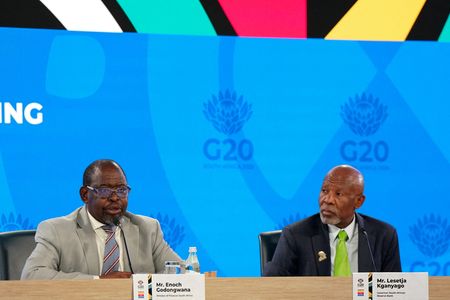JOHANNESBURG (Reuters) – South Africa’s private sector shrank in March for the fourth consecutive month, as output and sales declined amid economic uncertainty, a survey showed on Thursday.
The S&P Global South Africa Purchasing Managers’ Index (PMI) fell to 48.3 in March from 49.0 in February, remaining below the 50.0 threshold that separates growth from contraction.
This was the second-lowest reading since July 2023, indicating ongoing challenges in the business environment.
Output volumes decreased steadily, with firms attributing the decline to lower new orders, contract completions, and weaker consumer spending.
New order volumes fell sharply, driven by economic and political uncertainties, although there was a slight uptick in international demand, particularly from African countries.
“The March PMI figures confirmed a full quarter of declining business conditions in the South African private sector,” said David Owen, senior economist at S&P Global Market Intelligence.
“Demand levels continued to fall in March, with some panellists blaming the uncertain outlook on domestic fiscal policy and global trade, which has contributed to a waning of business confidence and a drop in customer spending,” Owen said.
On a positive note, cost pressures eased, with input price inflation reaching a five-month low. The rand’s improved exchange rate helped mitigate supplier cost increases, leading to a marginal decline in selling prices for the first time since October 2024.
(Reporting by Johannesburg Newsroom; Editing by Hugh Lawson)








